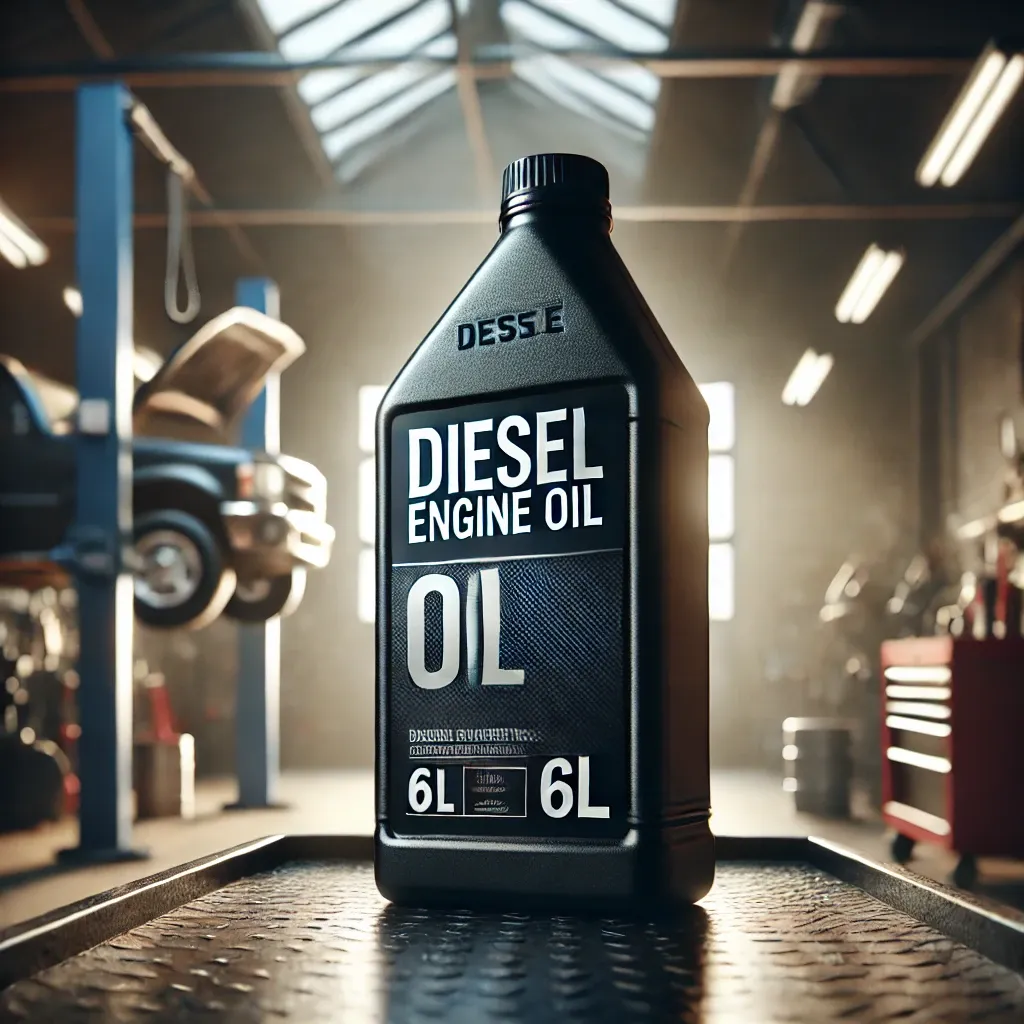Have you ever wondered what diesel engine oil is right for your vehicle? Learn all about diesel engine oil grades, the SM6 diesel engine oil capacity, and how Euro 6 standards influence oil selection for modern vehicles.
Diesel Engine Oil Grade
When it comes to choosing the right diesel engine oil, one of the most important factors is the oil grade. The grade not only indicates the oil’s viscosity but also its ability to perform in extreme temperatures and under high stress. Diesel engine oils are classified into different grades based on their performance, with the two most common systems being the SAE (Society of Automotive Engineers) and API (American Petroleum Institute).
Understanding Diesel Engine Oil Grades
-
SAE Viscosity Grades: Diesel engine oils are typically rated using the SAE viscosity system, which includes grades like 10W-30, 15W-40, 5W-40, and 5W-30. The first number (e.g., 10W) represents the oil’s ability to flow in cold temperatures, while the second number (e.g., 40) refers to the oil’s performance at high temperatures. For instance, 15W-40 oil works well in moderate climates, offering good protection for diesel engines under various operating conditions.
-
API Classification: The API classification system helps determine the quality and performance of engine oils. Oils designed for diesel engines are typically labeled with “C” (for Compression ignition engines), such as CI-4 or CJ-4. These labels signify that the oil meets specific requirements for soot control, oxidation resistance, and overall engine protection.
Why It Matters
Choosing the right oil grade ensures that your engine performs efficiently and lasts longer. For instance, using oil with too high of a viscosity for the climate or engine type can result in poor fuel economy and increased engine wear. On the other hand, using an oil that’s too thin could compromise the engine’s protection under heavy load conditions.
Diesel engine oil grades are not only crucial for performance but are also designed to meet environmental and regulatory standards, ensuring that vehicles adhere to emission requirements.
👉 Learn More About Diesel Engine Oil Grades 👈
Diesel Engine Oil and Its Importance
Diesel engine oil is specially formulated to meet the unique needs of diesel engines, which are generally subjected to greater stress than gasoline engines. These oils not only lubricate the engine’s moving parts but also help cool the engine, clean contaminants, and prevent corrosion.
What Makes Diesel Engine Oil Different?
-
High-Quality Additives: Diesel engine oils are rich in additives that improve the performance of the engine. These additives enhance the oil’s ability to protect the engine from soot buildup, reduce wear on engine components, and maintain optimal performance over time.
-
Enhanced Detergent Properties: Diesel engines are known for generating more soot and particulate matter than gasoline engines. Diesel engine oils have better detergent properties that help keep the engine clean by breaking down soot particles and preventing sludge formation. This is crucial for ensuring smooth engine operation.
-
Extended Oil Drain Intervals: Diesel engine oils are often designed to last longer than regular engine oils. The oils contain additional detergents and dispersants to handle the high levels of carbon and sulfur that are common in diesel exhaust, making them suitable for long intervals between oil changes.
Why Diesel Engine Oil Is Essential
The role of diesel engine oil goes beyond basic lubrication. It serves as a safeguard for engine parts, preventing premature wear and tear, which can be particularly costly for commercial vehicles. Oil change intervals and maintenance schedules depend on the quality of the oil and the type of diesel engine. Choosing the right oil can not only extend engine life but also improve fuel efficiency and lower maintenance costs.
👉 Learn More About Diesel Engine Oil Importance 👈
SM6 Diesel Engine Oil Capacity
When choosing the right diesel engine oil for your vehicle, it’s essential to consider the engine’s oil capacity. The SM6 diesel engine, a popular choice in modern diesel-powered vehicles, has a specific oil capacity that ensures optimal performance and longevity.
SM6 Diesel Engine Oil Capacity Overview
-
Oil Capacity Range: The oil capacity of the SM6 diesel engine varies depending on the model and the engine configuration. Typically, it requires about 6 liters of oil. However, some models may need slightly more or less. It’s always best to check the owner’s manual for exact specifications.
-
Oil Change Frequency: For vehicles with SM6 engines, regular oil changes are crucial. Depending on the oil used and the driving conditions, the oil change interval can vary, but it generally ranges from 10,000 to 15,000 kilometers (or 6,000 to 9,000 miles). Extended intervals are possible with high-quality synthetic diesel engine oils.
-
Choosing the Right Oil for SM6 Engines: The SM6 diesel engine typically performs best with oils that meet the specifications outlined by the manufacturer. These often include high-quality, full-synthetic oils that are designed to handle the high demands of modern diesel engines, especially those built with stricter environmental standards in mind.
Real-World Application: SM6 Diesel Engines
For example, if you own a modern SM6 diesel vehicle, using oil that exceeds the minimum API standards can significantly improve engine performance. Brands that offer SM6-compliant oils include Mobil 1, Shell, and Castrol, each offering oil designed to protect against soot buildup and maintain engine efficiency.
👉 Learn More About SM6 Diesel Engine Oil Capacity 👈
Euro 6 Diesel Engine Oil
The introduction of Euro 6 emission standards has changed how diesel engines are designed and how their oils are formulated. Euro 6 is the European Union’s stringent emission standard for diesel engines, which requires manufacturers to reduce nitrogen oxide (NOx) emissions and particulate matter (PM) significantly.
Euro 6 Diesel Engine Oil Requirements
-
Low-Emission Standards: Euro 6 engines produce far fewer emissions than previous models, which means the engine oil must meet stricter requirements. Oils for Euro 6 diesel engines must help reduce harmful emissions by promoting cleaner combustion and maintaining the engine’s overall efficiency.
-
Compatibility with Emission Systems: Euro 6 diesel engines are often equipped with advanced after-treatment systems like selective catalytic reduction (SCR) and diesel particulate filters (DPF). The engine oil must be compatible with these systems, ensuring that they operate effectively without clogging or causing damage.
-
High-Performance Oils: Euro 6 engines require oils that can handle extreme temperatures and the increased pressures found in modern diesel engines. These oils are formulated with better oxidation stability and improved fuel economy, which are key to meeting Euro 6 requirements.
The Impact on Diesel Engine Oil Selection
For example, if you own a diesel vehicle that complies with Euro 6 standards, choosing the right oil helps optimize performance and keeps your engine compliant with environmental regulations. High-performance oils from brands like Total and Castrol are excellent choices for Euro 6 vehicles, as they ensure the engine runs smoothly and reduces harmful emissions.
👉 Learn More About Euro 6 Diesel Engine Oil 👈
Conclusion
In summary, understanding diesel engine oil is critical for maintaining the performance and longevity of your vehicle. Whether it’s selecting the right oil grade, understanding the oil capacity for SM6 diesel engines, or ensuring compatibility with Euro 6 standards, the right oil ensures smoother operation, better fuel efficiency, and a longer engine life. Always refer to your vehicle’s manual to choose the correct oil and ensure that your engine remains in top condition.
As the saying goes, “An ounce of prevention is worth a pound of cure.” Taking the time to choose the right oil and maintain regular oil changes can save you significant costs and hassle in the future.






